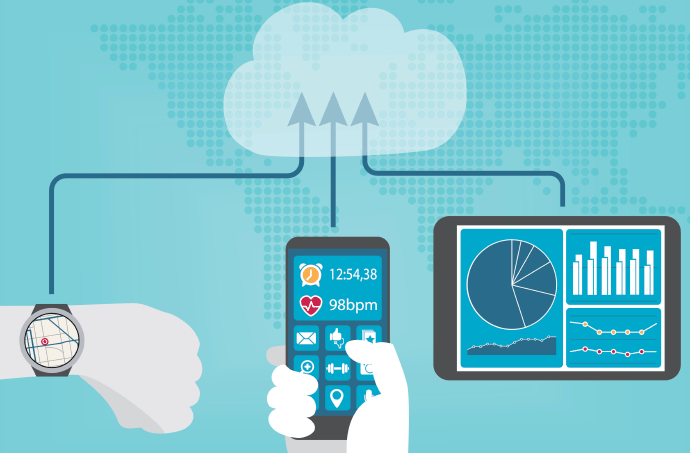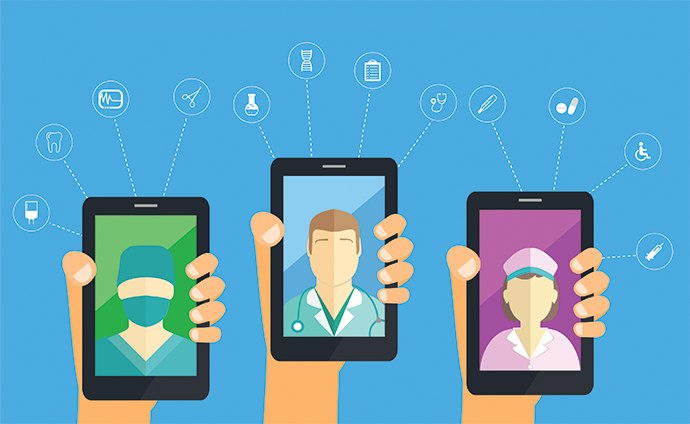SPONSOR: CardioComm Solutions (EKG: TSX-V) – The heartbeat of cardiovascular medicine and telemedicine. Patented systems enable medical professionals, patients, and other healthcare professionals, clinics, hospitals and call centres to access and manage patient information in a secure and reliable environment.

mHealth Study to Test Cardiac Effects of Potential COVID-19 Treatment
A French study will use a smartwatch and mHealth platform to monitor ECG data from COVID-19 patients being treated with hydroxychloroquine, a potential therapy for the Coronavirus but one that may have serious side effects.

- An mHealth study being launched in France will use an mHealth wearable to monitor cardiac activity in COVID-19 patients being treated with hydroxychloroquine and azithromycin, a drug therapy eyes as a potential treatment for the Coronavirus.
Source: ThinkStock
April 22, 2020 – An mHealth study being launched in France will use an mHealth wearable to monitor cardiac activity in COVID-19 patients being treated with hydroxychloroquine and azithromycin, a drug therapy eyes as a potential treatment for the Coronavirus.
Researchers at the University Hospital of Marseille will be using a smartwatch develop by Withings and integrated with an AI-based mHealth platform developed by Boston-and-Paris-based Cardiologs. The platform is designed to remotely monitor a user’s ECG data for QT prolongation.
“A significant QT prolongation can lead to ventricular arrhythmia and potentially deadly consequences†Laurent Fiorina, a cardiologist at the Institut Cardiovasculaire Paris Sud (ICPS) and Cardiologs executive who helped launch the study, said in a press release. “It is thus important to closely monitor the QT interval during this treatment.â€
“The objective of our study is to evaluate a new method for QT measurement using Cardiologs’ AI-based solution and ECG data collected via smartwatches,†added Professor Jean-Claude Deharo, head of the cardiac arrhythmia department at the University Hospital of Marseille and the principal investigator of the study. “Smartwatches are already used in the clinical setting but do not have validated QT analysis available. Combining these technologies will enable clinicians to overcome the practical limitations in the context of COVID-19 of the standard cardiac safety strategy that requires heavy patient interaction.â€
Often used to prevent or treat malaria caused by mosquito bites, hydroxychloroquine has be held up by several people – including President Donald Trump – as a potential means of treating the Coronavirus. But many in the healthcare industry have pointed out the drug’s potentially dangerous side effect.
Researchers are hoping to determine whether the treatment does pose a threat to a patient’s health – and whether this platform can be used in other non-COVID-19 treatments.
“This study has implications for risk management of drug-induced cardiotoxicity, even beyond the current COVID-19 and hydroxychloroquine context,†Professor Jag Singh, a cardiologist at Massachusetts General Hospital, Professor of Medicine at Harvard Medical School and scientific advisor to Cardiologs, said in the press release. “Personal ECG sensors could potentially find a role in the management of these patients, but also add value in other routine clinical care, since over 300 commonly used drugs may have similar QT-prolongation risks as hydroxychloroquine.â€
Source: https://mhealthintelligence.com/news/mhealth-study-to-test-cardiac-effects-of-potential-covid-19-treatment

